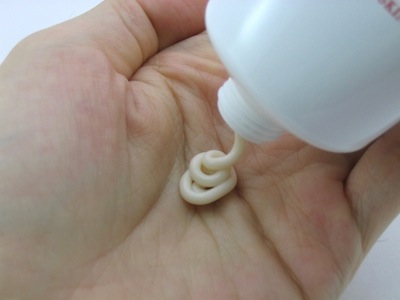This originally appeared on The Good Men Project. Republished here with permission.
Society’s expectations of manliness can cause men to keep their passions in the closet.
Here’s a hypothetical scene from a movie or commercial that you’ve probably seen over and over. A group of “bros” are hanging out when one of their phones rings with the soaring vocals of a Celine Dion song. The guilty guy acts embarrassed and tries to offer an explanation before getting teased by his buddies. I’ve seen variations on this scene played out in popular media numerous times.
Every man has at least one guilty pleasure. A hobby, interest, or memento that he loves in secret for fear of what others would think of him if they found out. It might be a movie he loves or a childhood keepsake he can’t let go of. While men and women both have guilty pleasures, men may have more due to society’s narrow expectations of masculinity.
For example, my guilty pleasure is Bath & Body Works products. It started a few winters ago when I used my wife’s cinnamon bun scented lotion for the first time. Despite how good it smelled on her, I resisted using it for several months because I was stuck on the idea that it was for women. Even in the privacy of my own home, I felt embarrassed about using a product marketed for women.
Now I use “our” lotion daily, even though you won’t catch me admitting that to another man. The few women I’ve told about my guilty pleasure have informed me that their husbands use their scented lotions too. I would never know that though because it isn’t something men typically talk about with one another.
A large motivator for men keeping their guilty pleasures secret is shame caused by the imposed expectations on men to meet a certain ideal of manhood. When shopping at Bath & Body Works, employees always presume that I am shopping for my wife and offer to help me find a product for her. The company’s advertising implies that their products are for women too. For example, a recent advertisement stated that an in-store event was perfect for “a girl’s day out.” I understand who their main customer base is, but some guys do like to smell like fruit or candy!
If you pay attention to the men in your life, they will sporadically and accidentally disclose their guilty pleasures to you. The husband of a couple I know was teased by his wife a few months ago in front of my wife and I about having Ke$ha on his iPod. His face turned red and he replied defensively to me, “Don’t act like you don’t have her on your iPod, too.” I recently found out two men I work with love to knit. When I mentioned it to one of the men, he appeared to be embarrassed that I knew about his hobby.
The concept of men having guilty pleasures really stems from the nature v. nurture debate related to gender. How much do biological aspects of gender, such as testosterone, influence a man’s hobbies or entertainment interests? Do men like sports because they are men or because that is what they are taught is acceptable for their gender? Why does having a penis make it unacceptable to like a certain beauty product or extracurricular activity?
Personally, I feel that gender expectations are almost entirely socially constructed. Sometime, somewhere, someone said that blue was a boy color and pink was a girl color. Society at large has decided what is acceptable for men and women. A man can often feel uncomfortable or unsure of his masculinity if he does not fit into those acceptable categories created by society.
I’ve noted that the lines of gender have begun to blur over the last decade, but I still feel that we need to continue to move forward. I recall when I was in high school in the early 2000s, a male would still get made fun of if he wore pink. Many men (including me) now wear pink as a standard color in their wardrobe. Compared to the past, men will now more openly admit to pampering themselves with manicures, waxing, and exfoliating treatments. Speaking of waxing, let’s not forget that the term “manscaping” has become a common phrase in popular culture.
My concern about men having to fit into a mold of masculinity is the manner in which it can socially isolate those men who don’t check off every item on the list of acceptable masculine traits. These men can feel shame and embarrassment from an early age that continues into adulthood. As these men have a difficult time trusting and opening up to other men, they deny themselves of the satisfaction that can come from being completely authentic with themselves and others. I hope that future generations of boys and men will experience that authenticity and freedom as society rids itself of oppressing gender stereotypes for both sexes.
Brad works as a mental health professional in the Rocky Mountain region. He loves his wife and two young children. If he had an extra hour a day, he would take a nap.
Related Links:

